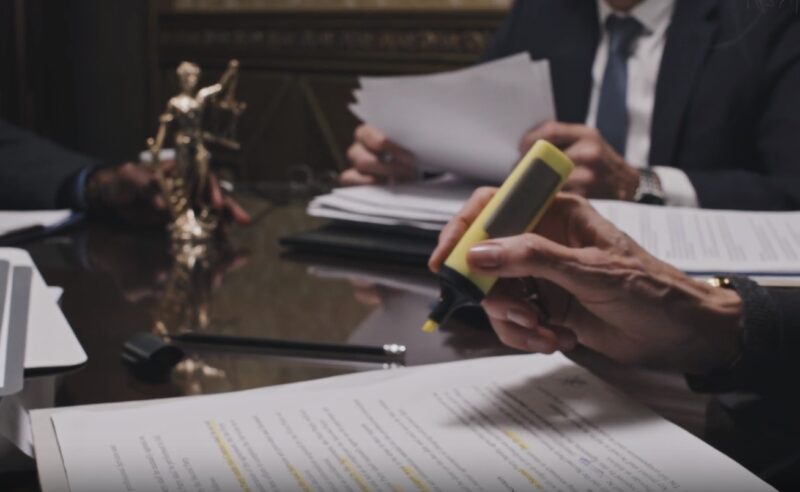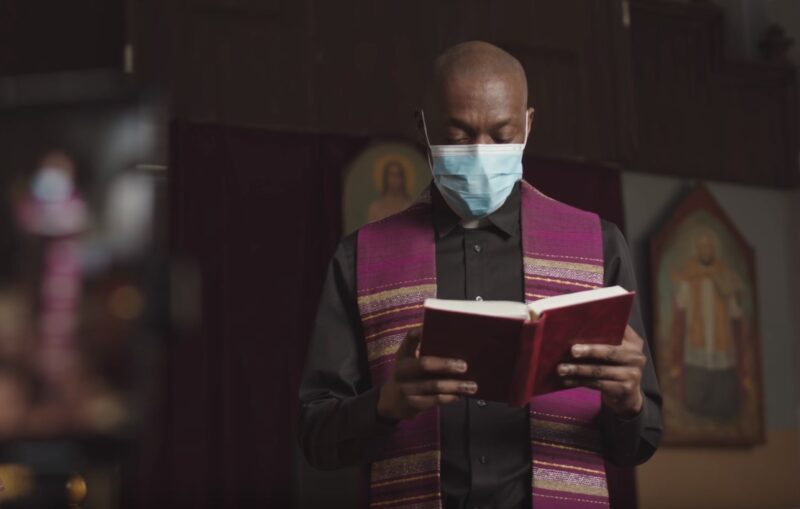In an era dominated by the global response to the COVID-19 pandemic, the rollout of vaccines has been heralded as a vital tool in the fight against the virus. For some individuals, accepting a vaccine can be in conflict with deeply held religious beliefs.
This guide of ours goes into the intricate process of seeking a religious exemption for the COVID-19 vaccine, offering insights into understanding the foundation of faith-based decisions, the steps involved in claiming such an exemption, and the broader implications of this choice on personal and community relationships.
The Roots of Faith-Based Decisions

Many world religions have guidelines concerning health and the body. For some, these guidelines may conflict with modern medical practices, leading believers to make choices in alignment with their faith. It’s essential to differentiate between personal beliefs and religious mandates.
A personal belief, no matter how strong, may not be sufficient to qualify for a religious ground if it’s not rooted in a specific religious teaching or tradition. Not all religions have explicit teachings on vaccinations. While some faiths may have historical or scriptural reasons for opposing certain medical interventions, others might not have a clear stance.
Before seeking an exemption, it’s crucial to consult religious leaders or texts to understand if the faith truly prohibits or discourages vaccinations. It’s worth noting that some religious objections might be based on ingredients used in vaccines or the methods of their production.
Claim a Faith-Based Non-Compliance for Vaccination

The first step is usually to provide a written statement explaining the religious reasons for refusing the vaccine. This should be detailed, citing specific teachings or scriptures if possible.
- Supporting documentation might be required
- These could include letters from religious leaders or excerpts from religious texts that back up the claim.
- Ensure that these documents are genuine and represent the beliefs accurately.
Legal Implications and Considerations
Different regions or countries may have varying laws regarding religious grounds. It’s essential to research local laws and regulations to understand the rights and potential implications.
Some places might require evidence that the individual has consistently observed the religious practice in question. In such cases, a history of similar religious-based decisions, like refusing other medical interventions, can strengthen the claim.
Potential Challenges and Alternatives

Claims for religious-based non-compliance can undergo scrutiny. Authorities or employers might question the sincerity or consistency of the religious beliefs. It’s essential to be prepared for questions and possibly even legal challenges. Being genuine, consistent, and well-informed about one’s own religious stance is vital.
Exploring Other Grounds and Compromises
If a faith-based claim is not feasible or successful, it might be worth exploring other grounds for exemption, like medical reasons. Some institutions or regions might offer alternatives to vaccination, such as frequent testing or isolation periods. It’s important to stay updated on these options and be open to potential compromises.
Interacting with Your Community and Employers

As you know, communicating with your community and employers as well is crucial in this case.
Engaging in Open Dialogue
Open and respectful communication is essential when discussing religious-based decisions with community members, colleagues, or employers. Clearly explaining your stance can foster understanding, even if they don’t necessarily agree. Always approach such discussions with a willingness to listen.
It’s equally essential to understand others’ concerns about public health and safety. Finding common ground or compromise can be easier when both parties feel heard.
Know Your Rights and Responsibilities
Educate yourself about the rights provided for religious freedom in your region or country. Knowing these can empower you when discussing your decision with others. It’s also essential to understand any responsibilities or requirements that come with claiming religious non-compliance.
This could include:
- Testing
- Wearing masks
- Other preventive measures
Varied Reactions

Society’s response to religious decisions regarding the vaccine can vary widely. While some may be understanding and supportive, others might express concern or even resentment, especially if they perceive the decision as a public health risk.
Preparing for a range of reactions and being equipped to handle criticism with grace can make the journey smoother. It’s also beneficial to surround oneself with supportive community members or groups who share similar beliefs and decisions.
Building Bridges Through Education
One effective way to mitigate misunderstandings is to educate those around you. Host or attend informational sessions, workshops, or discussions about religious beliefs and their intersection with healthcare choices. By fostering an environment of learning and openness, it can reduce misconceptions and build bridges between differing viewpoints.
Remember, the goal isn’t necessarily to convince, but to inform and understand.
Reflecting on Personal Convictions and the Greater Good
At the heart of the decision to seek religious non-compliance lies a balance between personal convictions and the greater good. Every individual must weigh their deeply held beliefs against the broader concerns of community well-being and herd immunity.
By introspecting deeply about this balance, one can find clarity. Engage in meditative or contemplative practices, or seek counsel from trusted religious leaders or mentors to guide your reflections.
Ethical Dimensions of the Decision
Every decision has ethical implications. In the context of public health, the choice to forgo vaccination based on religious grounds might raise questions about the potential risks to others, especially vulnerable populations.
Engaging with ethical teachings within one’s faith can provide insights into how to navigate this balance. Exploring secular ethical discussions on the subject can offer a well-rounded perspective.
Potential Long-Term Implications
As any other decision in your life, this one also might come with advantages and drawbacks.
Living with Your Decision
Choosing a path based on religious convictions is a significant decision that may have long-term implications. It might influence one’s professional trajectory, social interactions, and even access to certain public spaces or events. It’s essential to be mentally and emotionally prepared for these consequences.
Establishing a support system, whether it’s a community group, family, or friends who respect and understand your decision, can be invaluable.
Staying Updated
As the understanding of public health concerns evolves, policies and recommendations may change. Keeping oneself updated on the latest guidelines, research, and legal stances is crucial.
- Subscribe to trusted news sources
- Join community forums
- Participate in local discussions
All these actions will help you ensure you’re always informed. This proactive approach will help in making any necessary adjustments in the future.
Involving Religious Leaders and Institutions

Religious leaders and institutions play a pivotal role in shaping beliefs and practices. Engaging with them can provide valuable insights and clarity when making a decision regarding vaccination non-compliance.
It’s beneficial to seek personal counseling or sessions with religious leaders who can provide guidance on scriptural interpretations and the faith’s stance on health matters. They might also offer an official endorsement or letter that can strengthen your claim.
Participating in Community Discussions
Many religious communities hold forums or discussions about contemporary issues, including health challenges. Participating in these can provide a broader perspective and understanding of the collective sentiment.
Sharing personal experiences and concerns in these forums can also help others in the community who might be grappling with similar decisions. Collective discussions can lead to community-wide resolutions or strategies.
Navigating Personal Relationships

Personal decisions, especially those that have public health implications, can sometimes strain relationships with family and friends. It’s essential to approach loved ones with openness, explaining the religious reasoning behind your decision.
- Mutual respect is vital
- While explaining your stance, also make an effort to understand their concerns.
- Especially if they might be at higher risk due to health conditions.
There might be situations where loved ones vehemently disagree with the choice of religious non-compliance. In such cases, setting clear boundaries can be helpful.
Discuss and determine precautions you might take during interactions, such as wearing masks or maintaining physical distance. Being proactive in ensuring the safety and comfort of both parties can alleviate tensions.
FAQs
How do personal beliefs differ from religious mandates?
Personal beliefs are individual convictions, while religious mandates are teachings or directives from a recognized religion. A strong personal belief might not qualify for a religious exemption if it’s not based on specific religious teachings.
How can I handle disagreements or challenges regarding my decision?
Open communication is essential. Engage in respectful dialogues, seek support from community groups or religious leaders, and always stay informed about the latest guidelines and research to address concerns or questions effectively.
If my religious exemption is denied, what are my options?
You might consider appealing the decision, providing additional evidence, or exploring other exemption grounds, such as medical reasons. Some places might also offer alternatives like frequent testing.
Are there legal implications for claiming a religious exemption?
Yes, the legal implications vary depending on the jurisdiction. Some places might have laws protecting religious freedom, while others might prioritize public health mandates. It’s essential to be familiar with local laws and regulations.
Can my employer deny my religious exemption?
Some employers might accept a religious exemption, while others might require additional evidence or impose alternative safety measures, like regular testing or wearing masks.
Epilogue
In the mosaic of personal beliefs and public health imperatives, the decision to claim a religious exemption for the COVID vaccine stands as a testament to the diversity and depth of individual convictions. Navigating this path requires a balanced blend of introspection, information, and understanding of both the personal and public domains.
It’s essential to approach the journey with an open mind, respect for varied viewpoints, and a commitment to nurturing understanding and harmony.
Whether driven by personal faith or the desire to act in the best interest of the wider community, every individual’s choice deserves thoughtful consideration and respect.
You can find numerous useful insights regarding COVID at our website. Be sure to check it out.
